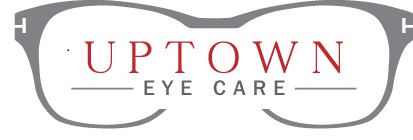114 N State St, Westerville OH 43081 614-882-0851 info@uptowneyedoc.com
- Navigation
- Home
- Forms
- Services
- » Services Overview
- » Thorough Eye Examinations
- » Low Vision Evaluations
- » Optical Boutique
- » Contact Lens Fitting
- » Exams for Kids
- » Infant Exams
- About
- » About Our Office
- » Staff
- » History of the Location
- » Sharing Sight
- Products
- » Frames
- » Spectacle Lenses
- » » Lens Overview
- » » Lens Design
- » » Lens Material
- » » Lens Coatings
- » Low Vision Devices
- » Contact Lenses
- » Other Products
- Contact Us
Anti-Reflective Coatings
Do you have a hard time driving at night? In the rain?
Are you on a computer or backlit device all day? Are you surrounded by fluorescent lighting? Are your eyes fatigued?
Do you dislike the glare that reflects off your lenses in photographs?
Anti-reflective coatings can help decrease or even eliminate these problems. There are many types of anti-reflective coatings on the market and also a big difference in quality. We work primarily with Hoya labs, and their AR coatings are fantastic! Optimum performance of the lenses occurs with the coatings are integrated with the lens material itself. All of Hoya's coatings are well-known for their durability, high transmission and easy to clean surface.

- GOOD
- Hi Vision: Global standard in anti-reflection protection
- BETTER
- Super Hi Vision: Ultra scratch resistant, super anti-reflection, super easy to clean
- BEST
- Super Hi Vision EX3: Better than glass! Extreme scratch resistance, extreme clean vision and extreme reflection protection
- HOYA Recharge: Helps to protect your eyes from damaging blue light wavelengths, while allowing you to comfortably enjoy your favorite mobile devices and other screens.
One of the biggest complaints from wearers of AR coatings is that they feel they have to constantly clean their lenses because they can see dust and dirt on the surface. The BETTER and BEST Categories have a smudge and dirt repellant top layer that optimizes visual performance and comfort, while reducing lens cleaning time.
Also, tests have shown that these Premium coatings have 3+ times the scratch resistance of standard AR coatings making it tough enough for any application.With these Premium coatings, you will find:
- Freedom from scratches
- Annoying and unattractive lens reflections are minimal
- Lens stays cleaner for longer periods of time
- Your lenses will last longer
- Comfortable glare-reduced vision
- GOOD
Anti-Scratch Coating
No lens is scratch proof-even hard glass lenses. However, adding a scratch coating to the lenses can definitely increase the durability and decrease the likelihood of scratches. This is a clear coating applied to the front and back of the lenses.
Lightweight lens materials such as polycarbonate are softer materials and more prone to scratches than glass or even plastic lenses.
Scratch coats or hard coats can be applied to these softer materials to add an extra layer of protection.
This is an especially great option for:
- Kids who tend to be rougher on their eyewear
- Active patients who are using their glasses in sports
- Teenagers and young adults that may not have developed good glasses care routines
- Construction or factory workers or anyone in a dusty, active environment
- Anyone with a tendency to leave glasses out of their case or drop them
Even with the best scratch coating on the market, you still need to take extra precautions to keep your lenses clear.
- Do not use papertowels, toilet paper or any other items to clean your glasses.
- Only use a soft microfiber cleaning cloth to clean your glasses.
- Use only recommended eyeglass spray cleaners or pre-moistened towelettes
- Leave your glasses in their case when they are not on your face
- Steer clear from products claiming to repair scratches.
Ultraviolet Coatings
When you are heading out for a day in the sun, do you remember your sunscreen? Most likely, you apply it regularly to yourself and your children. Of course, this is very important. Skin cancer is directly related to UV exposure, so we need to take those precautions every day.
How often do we give our eyes the same level of protection?
Studies have shown that kids get the majority of the damaging UV light that they will have in their entire lifetime before the age of 18. That statistic is frightening, but also empowering. If we know that they get the worst while they have parents to help them develop good habits, then we, as parents have the biggest opportunity to help protect them while they are young.
UV light also comes from artificial sources such as tanning beds, welding tools and lasers. Ultraviolet light can cause problems on the front of the eye and inside the eye, such as
- pinguecula
- pterygium
- photokeratitis
- skin cancer on eyelids
- cataracts
- macular degeneration
- solar maculopathy
Make sure your sunglasses and dress clear glasses all protect 99-100% of both UVA and UVB radiation. Wraparound frames are a great way to add even more protection. Some contact lenses even have a built in UV protection coating.
Thankfully, polycarbonate and nearly all high-index plastic lenses have 100 percent UV protection built-in, due to absorptive characteristics of the lens material. Plastic lenses will need an added UV coating to make them a safe option for you and your family.
Hours
Current Hours:
Monday: 9am- 4pm
Tuesday: 9am - 5pm
Wednesday: 9am - 6pm
Thursday: 9am - 4pm
Friday: Closed
Closed 12-1 for lunch daily
Saturday: 1st Saturday 8am -12 pm (by appointment only and hours may vary)
Sunday: Closed
Contact
